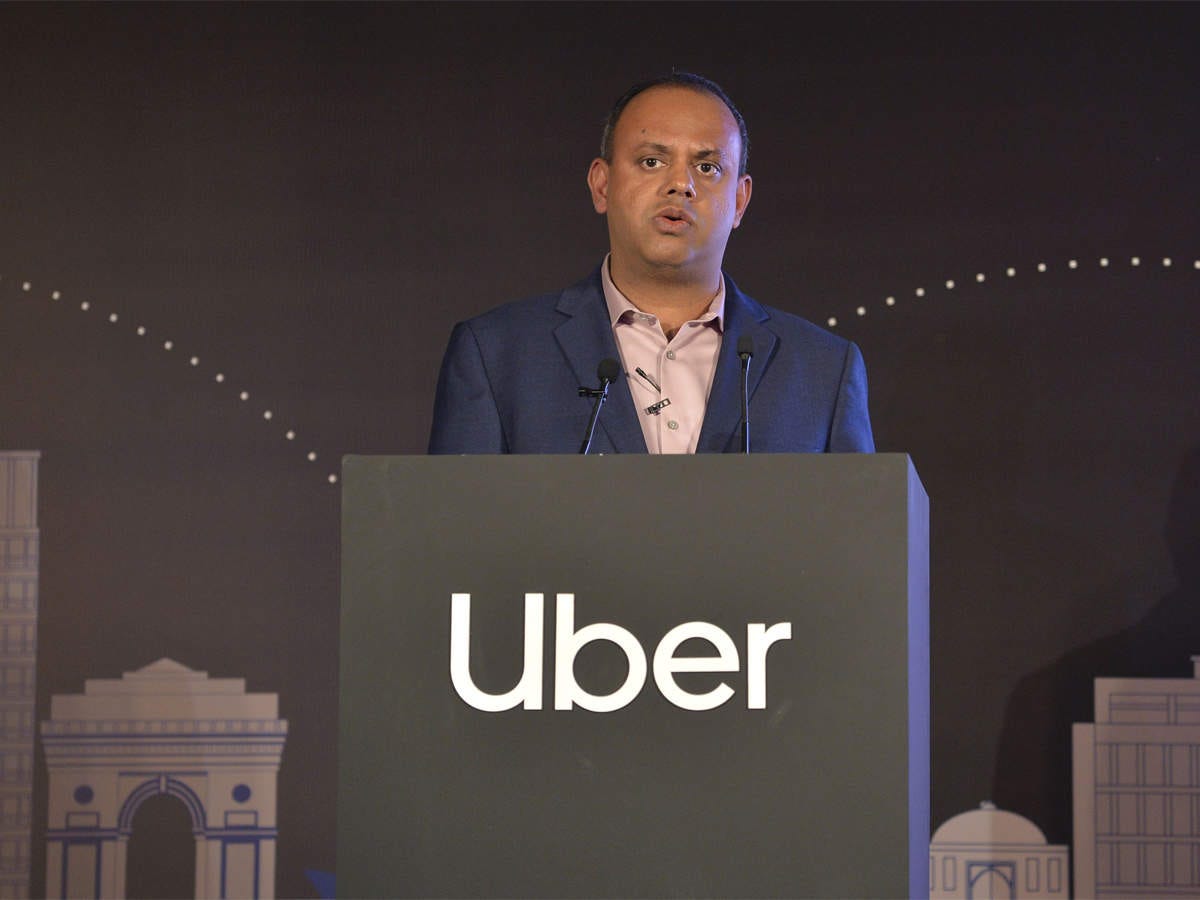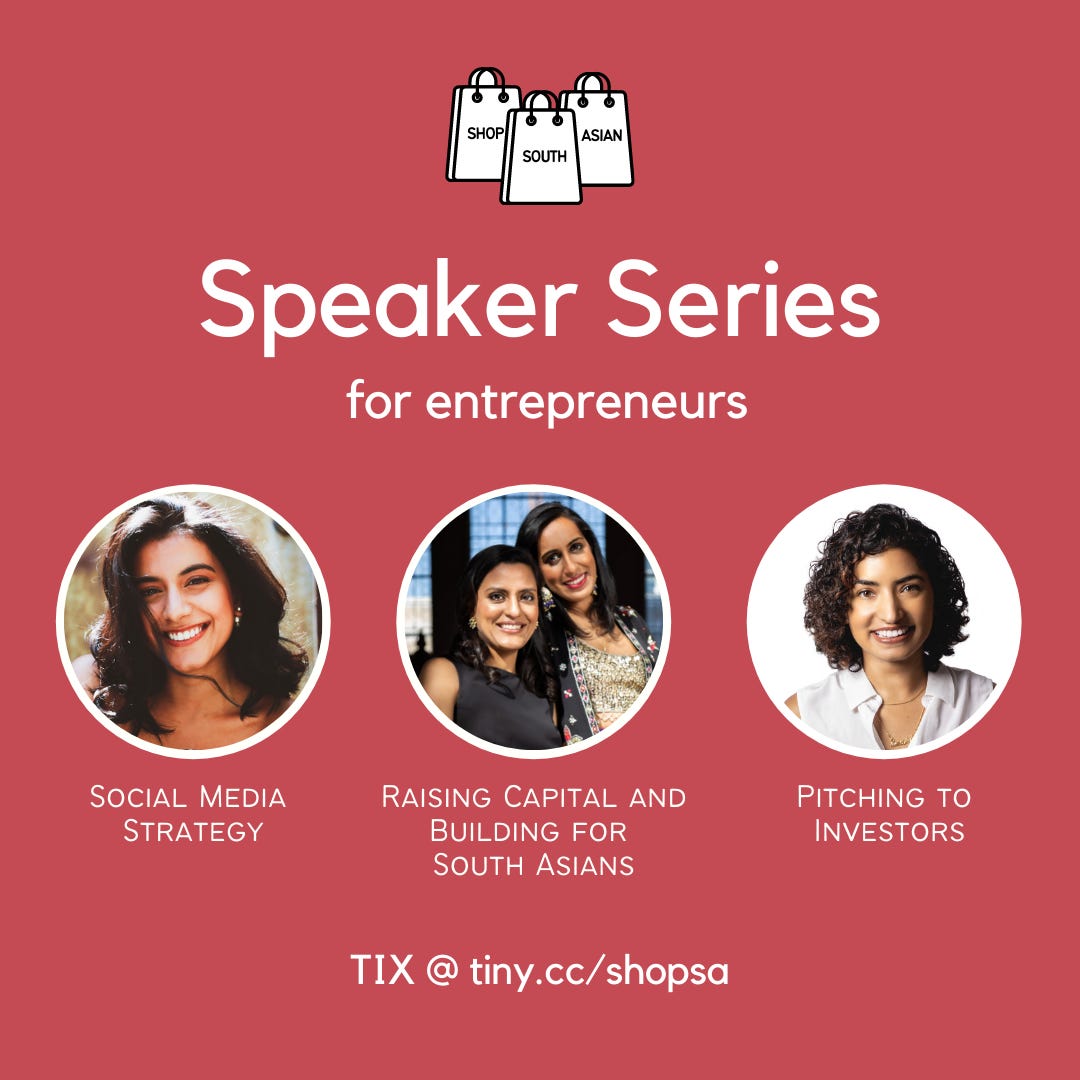#17 Uber's Former Product Chief, Manik Gupta
On building products for South Asians and becoming a product leader
Welcome to Trailblazers! I’m Simi Shah, and every 2 weeks, I bring you insights from trailblazing South Asians. If you enjoy this issue, please like it above and share with friends.
⬇️ Win a FREE TICKET to our Speaker Series ft. founders & investors
Hot off the Pod 🔥🎙️ Manik Gupta: Former Chief Product Officer @ Uber
Can you imagine a world without Google Maps? Well, imagine building it.
To meet the man behind Maps, listen to our latest episode with Manik Gupta, Investor and former Chief Product Officer at Uber.
Manik Gupta mapped the world from scratch as a Product Leader for Google Maps, where he also spearheaded their India launch and led the acquisition of Waze. His foray into tech began out of college, when he founded an e-commerce startup called BuyItTogether.com, which he subsequently sold. Afterwards, he ran Asia-Pacific e-commerce initiatives at HP.
Most recently, Manik served as the Chief Product Officer at Uber, where he helped lead the company through its IPO and grow to 100 million+ monthly customers. Since his departure, he’s become a startup investor, and founded a non-profit, CVKey, devoted to helping small businesses battle Covid-19.
Excerpts from the pod below:
What are some of the unique ways in which your identity and upbringing informed your building and launch of Google Maps in India?
One way is that I grew up in a community setting. My dad was a designer for fighter aircrafts, so I grew up in the neighborhood associated with the factory, a township in Lucknow. And I still remember that community aspect where everyone knew everybody and everybody always helped each other. It was a huge part of my upbringing. And I felt that in building Maps. One of our biggest unlocks was when we asked the community to help build a map for a specific area. We asked users to add information that they knew because starting from scratch, in India, we couldn’t get that info information from anywhere else. Doing that at scale is what really allowed Google to build all of its maps.
Another is that I knew how to manage significant uncertainty. In India, there was never a day where things would go exactly according to plan, right? There's always something: a power outage, something breaks down. It taught me about resilience. And that’s important because anytime you do anything in life, especially when you're building products, you will face roadblocks. And often times, teams wanted to give up when things got hard. And I was able to say, ‘It's okay. We just have to keep going and manage the uncertainty.’
. @manikgupta “responsible for doing the right things and doing them right.” PMs need to lead their teams by influence, not authority. They need to coordinate a well-functioning team. If things go well, it’s thanks to the team. If they fail, it’s on you.In becoming CPO, you had to become a serious manager, in addition to a product builder. What were some of the key learnings with this change?
When I became the CPO, I was managing almost more than 1100 people across six different functions, in product management, design, data science, and so on.
One thing I learned was the people management aspect of the job was a much larger component of my job than I originally imagined. We were always figuring out how to shape the organization and ensure that everyone was rowing in the same direction. So that was a good learning for me that you have to prioritize those things, and not only do you have to prioritize them, as a leader, you also have to have systems in place so that those things can happen at scale. Otherwise, if you're just going to be dependent on a few people to do it, it's just very hard.
The second one was I felt that my job as a communicator, as the person who kept setting the context for the product organization was very, very important. I would go into many meetings, and I would learn a lot because everyone's telling me information. But I didn't realize that a lot of people didn't have the same context, because they were not getting the same information I was getting, they weren’t in all the meetings that I was in. So I had to do a lot of extra work to essentially communicate and or communicate to the organization, saying: What are our priorities? Why are we doing certain things? What's working, what's not working? I used to write a monthly “Top of Mind” email to the entire organization. I was very transparent in terms of what I was seeing from my vantage point, and I used to always get a lot of responses to that email which was very helpful.
Catch the episode on Apple, Spotify, etc. here!
Catching Fire 🚀 what we’re following 👀
📺 In Culture
Journalist Valarie Kaur captures our sentiments after a mass shooting results in the deaths of 4 Sikh Americans. Poet Rupi Kaur plans her first-ever taped performance. Four major festivals across 3 different faiths fell on the same day.
🌎 Scenes from South Asia
Covid-19 drove 32 million middle class Indians into poverty last year. The subcontinent is due for record heat this Summer. U.S.-South Asian relations will change as troops withdraw from Afghanistan.


🎵 Listen to emerging South Asian artists.
Shop South Asian 🛍️ Speaker Series
Join us for our Shop South Asian Speaker Series! Learn more + follow the steps below to win a FREE TICKET…
Enter to win:







